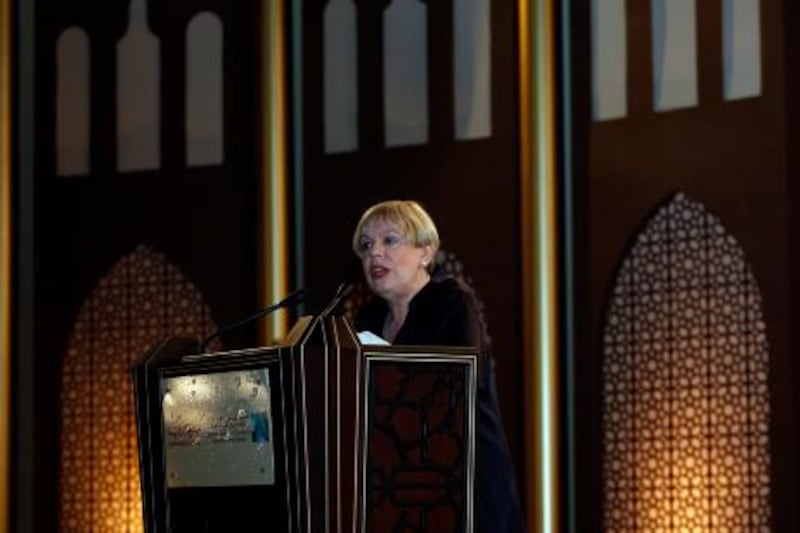DUBAI // It is almost a year since the British author Karen Armstrong stood in front of a packed auditorium at the American University of Sharjah to promote her newly founded Charter for Compassion.
It was a manifesto encouraging all to live by the golden rule that we treat others as we wish to be treated. The charter has gained momentum and in January, Armstrong published her 23rd book, Twelve Steps To a Compassionate Life.
She will discuss the charter and the book in a panel discussion this afternoon at the Emirates Airline Festival of Literature.
The charter, a 350-word online treaty, was launched in November 2009 with US$100,000 (Dh367,000) from the American non-profit ideas organisation TED. The aim was to get one million signatures, but her priorities have shifted.
"For me it is not about how many people get involved at the start, but who," she said. "It has not been politicians or leaders who have taken this up, it has been businessmen."
Partnerships in Pakistan mean that country offers courses on the virtue of compassion in some of its private sector schools, while some TV stations have introduced compassionate characters into series.
Seattle in Washington state in the US became the first city to adopt the charter last April, implementing a Compassionate Action Network. In the Middle East, Badr Jafar, the director of Crescent Petroleum, is spreading the word.
At a talk at Al Khawaneej Family Gathering area on Wednesday night, which was hosted by the Sheikh Mohammed Centre for Cultural Understanding, Armstrong stressed the difference between compassion and sympathy.
"People think compassion means feeling sorry for people but it doesn't," she said. "The English word derives from Greek and Latin roots meaning to put yourself in another's shoes, and in Arabic - al rahman - is related to the idea of a child in the womb. A mother's love is hard, and however awful a child is when it grows up, a mother never gives up. We have to cherish all creatures, however dispiriting they are, and never give up on each other."
Her work as a comparative-religion author enabled her to access communities regardless of religion, she said. Using the example of the Prophet Mohammed, who united many tribes across the Arabian peninsula, Armstrong encouraged the audience to celebrate pluralism.
"It is time to move away from the tribal distinctions of today, whether they be religion, nationality or culture, and remember that we were created into tribes and nationalities so that we may know each other."






